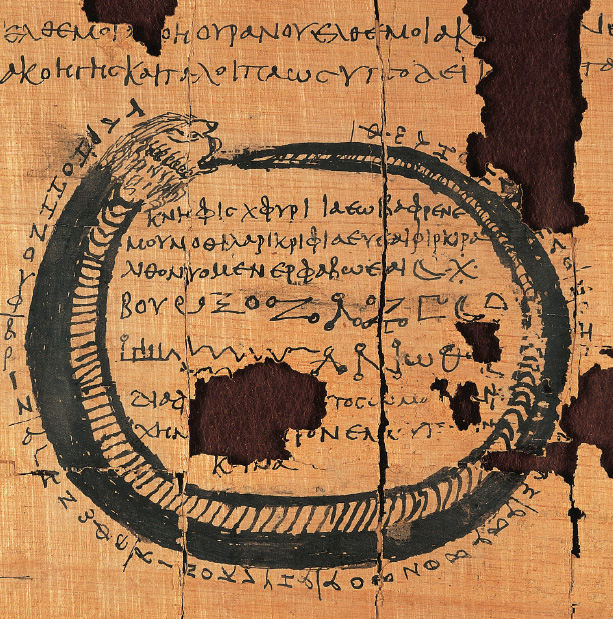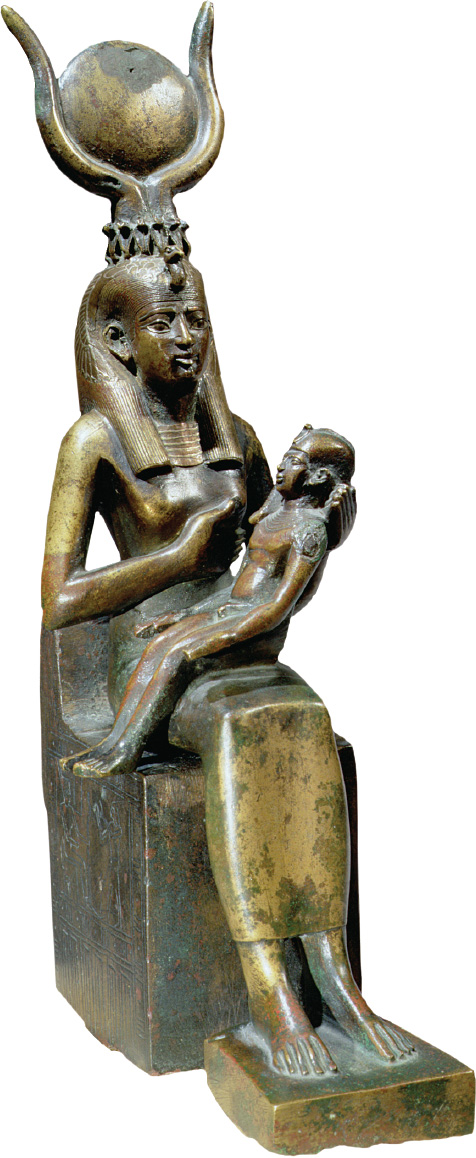A History of Western Society: Printed Page 109
A History of Western Society, Value Edition: Printed Page 111
Religion and Magic

When Hellenistic kings founded cities, they also built temples, staffed by priests and supported by taxes, for the Olympian gods of Greece. The transplanted religions, like those in Greece itself, sponsored literary, musical, and athletic contests, which were staged in beautiful surroundings among impressive new Greek-style buildings. These festivities offered bright and lively entertainment, both intellectual and physical. They fostered Greek culture and traditional sports and were attractive to socially aspiring individuals who adopted Greek culture.
Along with the traditional Olympian gods, Greeks and non-Greeks in the Hellenistic world also honored and worshipped deities that had not been important in the Hellenic period or that were a blend of imported Greek and indigenous gods and goddesses. Tyche (TIGH-kee), for example, was a new deity, the goddess and personification of luck, fate, chance, and fortune. Temples to her were built in major cities of the eastern Mediterranean, including Antioch and Alexandria, and her image was depicted on coins and bas-reliefs. Contemporaries commented that when no other cause could be found for an event, Tyche was responsible. Like the Olympians, she was unpredictable and sometimes malevolent.
Tyche could be blamed for bad things that happened, but Hellenistic people did not simply give in to fate. Instead they honored Tyche with public rituals and more-private ceremonies, and they also turned to professionals who offered spells for various purposes. We generally make a distinction between religion and magic, but for Greeks there was not a clear line. Thus these people would write spells using both ordinary Greek words and special “magical” language known only to the gods, often instructing those who purchased them to carry out specific actions to accompany their words. Thousands of such spells survive, many of which are curse tables, intended to bring bad luck to a political, business, or athletic rival; or binding spells, meant to force a person to do something against his or her will. These binding spells included hundreds intended to make another person love the petitioner. They often invoke a large number of deities to assist the petitioner, reflecting the mixture of gods that was common in Hellenistic society. (See “Primary Source 4.3: A Hellenistic Spell of Attraction.”)
Hellenistic kings generally did not suppress indigenous religious practices. Some kings limited the power of existing priesthoods, but they also subsidized them with public money. Priests continued to carry out the rituals that they always had, perhaps now adding the name “Zeus” to that of the local deity or composing their hymns in Greek.

Some Hellenistic kings intentionally sponsored new deities that mixed Egyptian and Greek elements. When Ptolemy I Soter established the Ptolemaic dynasty in Egypt, he thought that a new god was needed who would appeal to both Greeks and Egyptians. Working together, an Egyptian priest and a Greek priest combined elements of the Egyptian god Osiris (god of the afterlife) with aspects of the Greek gods Zeus, Hades (god of the underworld), and Asclepius (god of medicine) to create a new god, Serapis. Like Osiris, Serapis came to be regarded as the judge of souls, who rewarded virtuous and righteous people with eternal life. Like Asclepius, he was also a god of healing. Ptolemy I’s successors made Serapis the protector and patron of Alexandria and built a huge temple in the god’s honor in the city. His worship spread as intentional government policy, and he was eventually adopted by Romans as well, who blended him with their own chief god, Jupiter.
Increasingly, many people were attracted to mystery religions, so called because at the center of each was an inexplicable event that brought union with a god and was not to be divulged to anyone not initiated into them. Early mystery religions in the Hellenic period, such as those of Eleusis, were linked to specific gods in particular places, which meant that people who wished to become members had to travel. But new mystery religions, like Hellenistic culture in general, were not tied to a particular place; instead they were spread throughout the Hellenistic world. People did not have to undertake long and expensive pilgrimages just to become members. In that sense the mystery religions came to the people, for temples of the new deities sprang up wherever Greeks lived.
Mystery religions incorporated aspects of both Greek and non-Greek religions and claimed to save their adherents from the worst that fate could do. Most taught that by the rites of initiation, in which the secrets of the religion were shared, devotees became united with a deity who had also died and risen from the dead. The sacrifice of the god and his victory over death saved the devotee from eternal death. Similarly, mystery religions demanded a period of preparation in which the converts strove to become pure and holy, that is, to live by the religion’s precepts. Once aspirants had prepared themselves, they went through the initiation, usually a ritual of great emotional intensity symbolizing the entry into a new life.
Among the mystery religions the Egyptian cult of Isis spread widely. In Egyptian mythology Isis brought her husband Osiris back to life, and during the Hellenistic era this power came to be understood by her followers as extending to them as well. She promised to save any mortal who came to her, and her priests asserted that she had bestowed on humanity the gift of civilization and founded law and literature. Isis was understood to be a devoted mother as well as a devoted wife, and she became the goddess of marriage, conception, and childbirth. She became the most important goddess of the Hellenistic world, where Serapis was often regarded as her consort instead of Osiris. Devotion to Isis, and to many other mystery religions, later spread to the Romans as well as to the Greeks and non-Greeks who lived in Hellenistic cities.